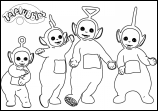题目内容
17.Culture shock is so named because of the effect it has on people when they enter a new culture.Experts have been interested in these effects and have agreed on five basic stages of culture shock.These stages are general and should only be used as a reference.Not every individual will go through each stage,and one stage may last longer than another for different individuals.The hardest thing for most travelers to deal with is the emotional"roller coaster"they seem to be riding.One moment they feel very positive toward the new culture,and the next moment very negative.It seems common that international visitors and immigrants vacillate(犹豫不定)between loving and hating a new country.Feelings of separation and alienation can be intensified if they do not have a sense of fitting in or belonging.
Fatigue is another problem people face when entering a new culture.There can be a sense of greater need for sleep.This is due not only to physical tiredness,but also to mental fatigue.This mental fatigue comes from straining to comprehend the language,and coping with new situation.
The impact of culture shock can vary from person to person.There can be significant differences because some people may be better prepared to enter a new culture.Four factors which play into these are personality,language ability,length of stay,and the emotional support received.
It is logical to think that when people are deprived of heir familiar surroundings they will feel disoriented.One solution some have found is to bring a few small reminders of home.Pictures,wall hangings,favorite utensils,and keepsake are all good candidates to make things feel more familiar.Another helpful activity is to establish little routines that become familiar over time.Even better is fitting things that were part of the regular routine back in the home country into the routine established in the new culture.This will make people feel more at home.
(Note:Answer the questions or complete the statements in NO MORE THAN TEN WORDS.)
81.According to the 1st paragraph,what have experts been interested in?Culture shock's effects on people.
82.What are the two problems people face when entering a new culture?Emotional"roller coaster"and fatigue.
83.Coping with new situations may result inmental fatigue.
84.The author thinks the more effective way to solve"cultural shock"isfitting some past regular routine into the new culture.
分析 本文为科教类阅读,文章介绍了文化冲突带来的影响及相应的解决措施.
解答 81.Culture shock's effects on people.
82.Emotional"roller coaster"and fatigue.
83.mental fatigue
84.fitting some past regular routine into the new culture
解析:
81.答案Culture shock's effects on people.细节理解题.根据第一段Culture shock is so named because of the effect it has on people when they enter a new culture.Experts have been interested in these effects 可知,专家感兴趣的是文化冲突对人们的影响.故填Culture shock's effects on people.
82.答案Emotional"roller coaster"and fatigue.细节理解题.根据第三段The hardest thing for most travelers to deal with is the emotional"roller coaster"they seem to be riding可知,最困难的部分是emotional"roller coaster".根据第四段Fatigue is another problem people face when entering a new culture可知,fatigue是另一个问题.故填Emotional"roller coaster"and fatigue.
83.答案mental fatigue.细节理解题.根据第四段This mental fatigue comes from straining to comprehend the language,and coping with new situation可知,应对新环境可能会造成精神疲劳.故填mental fatigue.
84.答案fitting some past regular routine into the new culture.细节理解题.根据最后一段Even better is fitting things that were part of the regular routine back in the home country into the routine established in the new culture.This will make people feel more at home可知,作者认为解决文化冲突更好的方式是在新文化中加入过去熟悉的常规事物.故填fitting some past regular routine into the new culture.
点评 本文主旨鲜明,很容易在文中找到答案.做题时要注意文章的首段和每一段的首句或尾句,因为它们往往就是文章的主题句.阅读中要注意要点之间的关系.然后带着问题,再读全文,找出答题所需要的依据,完成阅读任务.

| A. | the other | B. | another | C. | it | D. | that |
| A. | where did she put his coat | B. | where she put his coat | ||
| C. | did she put his coat where | D. | where was she putting his coat |
| A. | he complained about; also did refuse | |
| B. | did he complaine about; also refused | |
| C. | did he complaine about; also refuse | |
| D. | he complained about; also refused |
 Teletubbies
Teletubbies